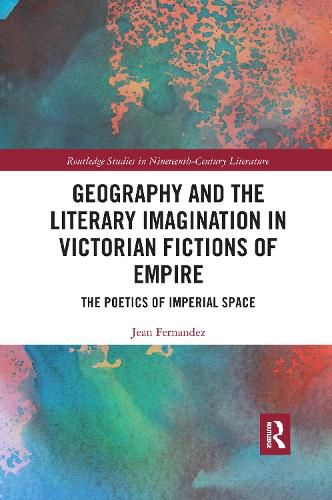Readings Newsletter
Become a Readings Member to make your shopping experience even easier.
Sign in or sign up for free!
You’re not far away from qualifying for FREE standard shipping within Australia
You’ve qualified for FREE standard shipping within Australia
The cart is loading…






In this pioneering study, Dr. Fernandez explores how the rise of institutional geography in Victorian England impacted imperial fiction’s emergence as a genre characterized by a preoccupation with space and place. This volume argues that the alliance between institutional geography and the British empire which commenced with the founding of the Royal Geographical Society in 1830, shaped the spatial imagination of Victorians, with profound consequences for the novel of empire. Geography and the Literary Imagination in Victorian Fictions of Empire examines Presidential Addresses and reports of the Royal Geographical Society, and demonstrates how geographical studies by explorers, cartographers, ethnologists, medical topographers, administrators, and missionaries published by the RGS, local geographical societies, or the colonial state, acquired relevance for Victorian fiction’s response to the British Empire. Through a series of illuminating readings of literary works by R.L. Stevenson, Olive Schreiner, Flora Annie Steel, Winwood Reade, Joseph Conrad, and Rudyard Kipling, the study demonstrates how nineteenth-century fiction, published between 1870 and 1901, reflected and interrogated geographical discourses of the time. The study makes the case for the significance of physical and human geography for literary studies, and the unique historical and aesthetic insights gained through this approach.
$9.00 standard shipping within Australia
FREE standard shipping within Australia for orders over $100.00
Express & International shipping calculated at checkout
In this pioneering study, Dr. Fernandez explores how the rise of institutional geography in Victorian England impacted imperial fiction’s emergence as a genre characterized by a preoccupation with space and place. This volume argues that the alliance between institutional geography and the British empire which commenced with the founding of the Royal Geographical Society in 1830, shaped the spatial imagination of Victorians, with profound consequences for the novel of empire. Geography and the Literary Imagination in Victorian Fictions of Empire examines Presidential Addresses and reports of the Royal Geographical Society, and demonstrates how geographical studies by explorers, cartographers, ethnologists, medical topographers, administrators, and missionaries published by the RGS, local geographical societies, or the colonial state, acquired relevance for Victorian fiction’s response to the British Empire. Through a series of illuminating readings of literary works by R.L. Stevenson, Olive Schreiner, Flora Annie Steel, Winwood Reade, Joseph Conrad, and Rudyard Kipling, the study demonstrates how nineteenth-century fiction, published between 1870 and 1901, reflected and interrogated geographical discourses of the time. The study makes the case for the significance of physical and human geography for literary studies, and the unique historical and aesthetic insights gained through this approach.